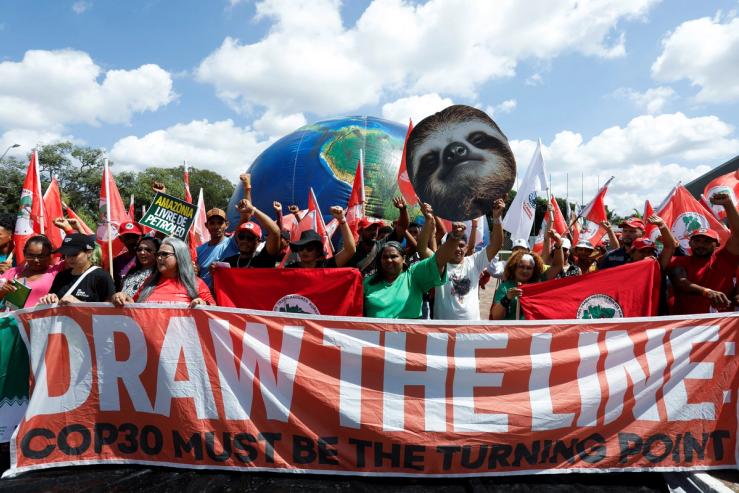The News
Negotiators gathering in Brazil this year for the COP30 climate summit face many challenges but chief among them will be working to protect the actual notion of multilateral efforts to combat global warming, the head of last year’s COP warned.
Speaking to Semafor, Mukhtar Babayev — the COP29 president and Azerbaijan’s minister of ecology and natural resources — outlined numerous issues that would likely be central to negotiations at November’s talks in Brazil: Assessment of nationally determined contributions, or individual countries’ carbon-cutting commitments, as well as protection of tropical forests and climate finance will all be core to the discussions.
But Washington’s impending withdrawal from the Paris Agreement, and its refusal to send negotiators to COP30 points to a fracturing of global climate efforts. “The main challenge is… how to protect a multilateral process, how to protect the climate agenda, and how to have very ambitious plans,” Babayev said in an interview.
In this article:
Prashant’s view
In the run-up to the COP30 negotiations in November, much of the climate community has been downbeat, worried that logistical hurdles in Brazil could prevent many world leaders, business executives, and other key actors from attending the main summit site.
To some extent, those concerns have been proxies for a deeper one: That the COP process itself is at risk.
In particular, Washington’s turn against prioritizing the fight against climate change — one of the signature pieces of legislation signed by Trump’s predecessor aimed to accelerate adoption of green tech — has had consequences, both tangible and intangible for the energy transition.
Since US President Donald Trump returned to office, Washington has sharply pivoted away from efforts to finance cutting-edge clean tech and instead focused on an “energy dominance” agenda that has centered on driving up sales of liquefied natural gas, of which the US produces enormous quantities: That was the main topic of discussion in the US energy secretary’s talks with European leaders in Brussels this week, for example.
The consequent rollback of domestic policies promoting wind and solar power, as well as electric vehicles, has resulted in a sharply slower pace of domestic decarbonization, a report by the Rhodium Group found recently. And abroad, Trump has pressed for countries to keep using fossil fuels, arguing in a cabinet meeting that other nations were “destroying themselves” by using wind power, for example.
But even before Trump came to office, there were questions over how much progress was being made at the summits.
Babayev presided over COP negotiations last year in Baku that were dominated by the issue of climate finance, ultimately brokering a deal by which rich countries agreed to raise at least $300 billion per year by 2035 in order to fund climate adaptation and mitigation efforts in poorer nations.
The figure was far lower than what most activists as well as negotiators from vulnerable nations had pushed for, and Babayev acknowledged that, thus far, actual contributions have fallen well short of that targeted figure, in part because Western nations have ramped up spending on defense and largely pared back their aid budgets. Lacking any sticks to cajole wealthy donors to pony up pledged funds, Babayev said he and other climate negotiators could only use public and private pressure in order to entice them to up their commitments.
Room for Disagreement
Babayev himself insisted that while the US withdrawal was far from ideal, plenty of other countries from around the world were stepping up to the plate to fill the void: China, for one, “played a very important role in discussions” during COP29 in Baku, while Australia, Brazil, Turkey, and European nations were also doing more on climate diplomacy, he said.
Within Africa, he noted that Ethiopia and Nigeria had put themselves forward to host the COP32 summit in 2027.
Notable
- African nations sought to present themselves as hubs for climate solutions during last week’s Africa climate summit, Grist noted.

